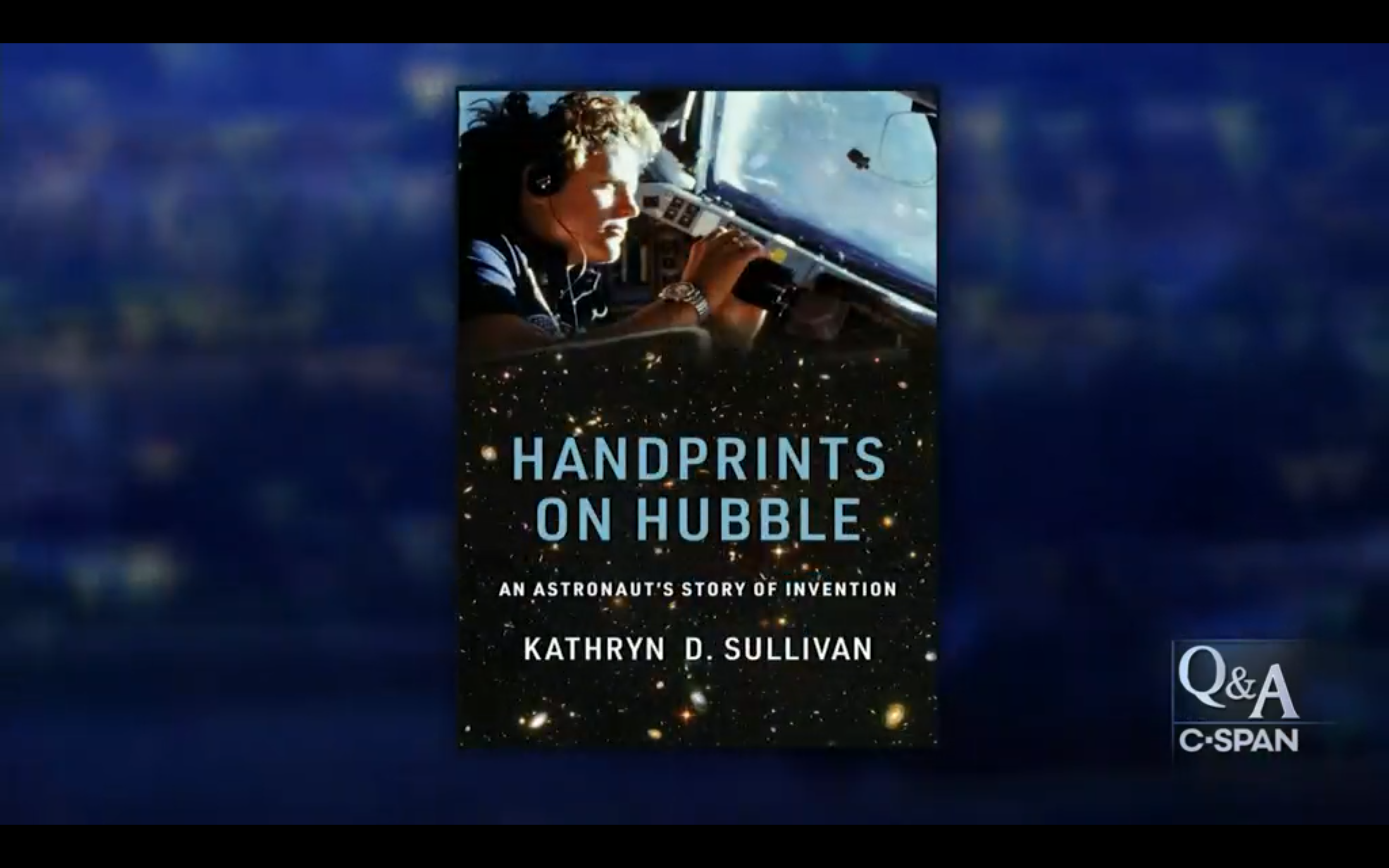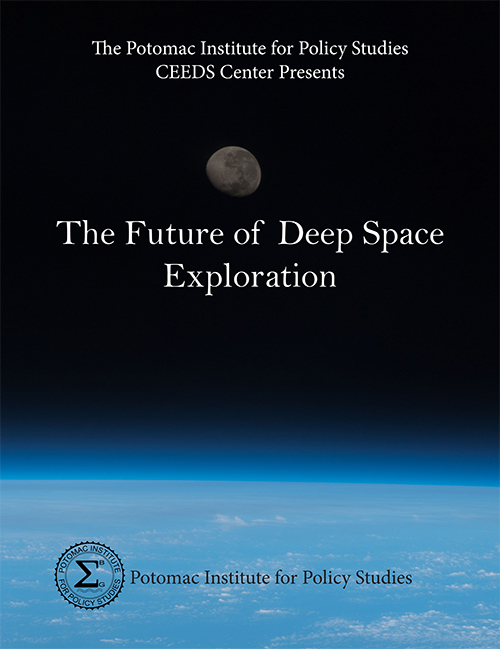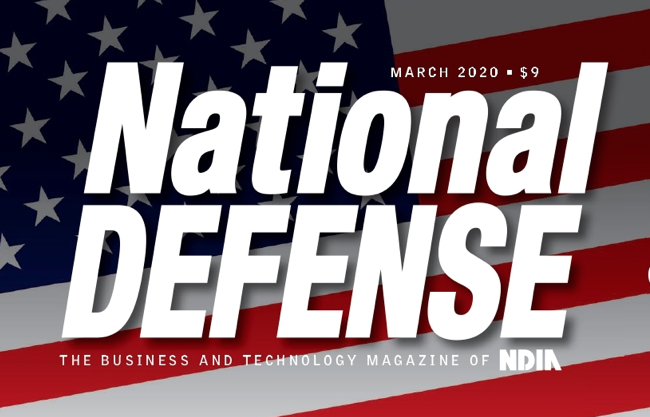Featured

 Senior Fellows Donald A. Donahue, DHEd, MBA, MSJ, FACHE, FRSPH, Lieutenant Colonel, MS, U.S. Army (Ret.) and Stephen O. Cunnion, MD, PhD, MPH, Captain, MC, U.S. Navy (Ret.) lead the Center for Health Policy and Preparedness (CHPP). In a piece for Homeland Security Affair, they take a look at the proposed paradigm of “all needs” planning in perceived needs within impacted populations regarding catastrophic event preparedness and response.
Senior Fellows Donald A. Donahue, DHEd, MBA, MSJ, FACHE, FRSPH, Lieutenant Colonel, MS, U.S. Army (Ret.) and Stephen O. Cunnion, MD, PhD, MPH, Captain, MC, U.S. Navy (Ret.) lead the Center for Health Policy and Preparedness (CHPP). In a piece for Homeland Security Affair, they take a look at the proposed paradigm of “all needs” planning in perceived needs within impacted populations regarding catastrophic event preparedness and response.

Watch C-SPAN’s Q&A with Dr. Kathryn Sullivan, Member, Board of Regents and Senior Fellow to learn more on the experience of being part of the first class of female astronauts from NASA, including participation in the launch and Hubble Space Telescope maintenance.
Dr. Kathryn Sullivan has a long career as a distinguished scientist, astronaut and executive. She was one of the first six women to join the NASA astronaut corps in 1978 and holds the distinction of being the first American woman to walk in space. She flew on three space shuttle missions during her 15-year NASA tenure, including the mission that deployed the Hubble Space Telescope. Since leaving NASA, Dr. Kathryn Sullivan has held a variety of senior executive positions, including Presidential appointments to the National Science Board and as Chief Scientist, Deputy Administrator and Undersecretary/Administrator of the National Oceanic and Atmospheric Administration.
Watch C-SPAN’s Q&A with Dr. Kathryn Sullivan, Member, Board of Regents and Senior Fellow here.
https://www.c-span.org/video/?468321-1/qa-kathryn-sullivan

 For decades, the US has led the charge in space exploration. American astronauts were the first to land on the moon. NASA’s Pioneer, Galileo, Voyager, NEAR, and Cassini-Huygens missions continued to forge ahead: first to fly by Saturn, Uranus, and Neptune; first to orbit Jupiter and Saturn; first to land on an asteroid and first to land on Titan. These are but a few of the achievements of American deep space exploration over the last five decades. So what efforts are continuing today, and what does the future look like? On October 16, 2019, the Potomac Institute for Policy Studies’ (PIPS) Center for Enterprise, Exploration, and Defense in Space (CEEDS) held a seminar titled: “The Future of Deep Space Exploration” to examine and discuss issues related to the next steps in the manned and unmanned exploration of our solar system.
For decades, the US has led the charge in space exploration. American astronauts were the first to land on the moon. NASA’s Pioneer, Galileo, Voyager, NEAR, and Cassini-Huygens missions continued to forge ahead: first to fly by Saturn, Uranus, and Neptune; first to orbit Jupiter and Saturn; first to land on an asteroid and first to land on Titan. These are but a few of the achievements of American deep space exploration over the last five decades. So what efforts are continuing today, and what does the future look like? On October 16, 2019, the Potomac Institute for Policy Studies’ (PIPS) Center for Enterprise, Exploration, and Defense in Space (CEEDS) held a seminar titled: “The Future of Deep Space Exploration” to examine and discuss issues related to the next steps in the manned and unmanned exploration of our solar system.
It is important to first understand why it is beneficial to continue space exploration. The exploration of space has been a beacon of US leadership since the first moon landing. It has increased American prestige and allowed the US to be the de facto leader in developing the norms of space operations. Space exploration is the perfect opportunity for international collaboration to strengthen partnerships. Like the expedition of Lewis and Clarke, it is the first step in a greater move into the solar system. Without exploration, there can be no return trips, and certainly no permanent home elsewhere in space. Space science missions also allow us to understand the origin of our planet, our solar system, our galaxy, and even the entire universe. Furthermore, as is evidenced by each previous space program the technological development necessary to complete ambitious scientific and manned expeditions directly leads to advancements in science and technology for the rest of society. However, most of all, continued space exploration has a unique effect on the human species, raising aspirations skyward and inspiring dreams in hearts and minds across all ages.
“The Future of Deep Space Exploration” panel participants offered visions for both manned and unmanned American space exploration for NASA, commercial companies, and research organziations like universities.
See Full Report here

 The Potomac Institute seeks to address improvements to biometric data policy that include privacy and security protections, while simultaneously allowing for research and innovation. This report provides findings on current biometric data practices and vulnerabilities, reviews current domestic policy, identifies shortcomings, and provides our recommendation for a policy approach to biometric data privacy. Ultimately, we suggest that to uphold American citizens’ right to privacy and promote national security, comprehensive federal legislation must be passed that regulates the collection, use, distribution, and security of biometric data.
The Potomac Institute seeks to address improvements to biometric data policy that include privacy and security protections, while simultaneously allowing for research and innovation. This report provides findings on current biometric data practices and vulnerabilities, reviews current domestic policy, identifies shortcomings, and provides our recommendation for a policy approach to biometric data privacy. Ultimately, we suggest that to uphold American citizens’ right to privacy and promote national security, comprehensive federal legislation must be passed that regulates the collection, use, distribution, and security of biometric data.
See the report here.

 Huawei has become a poster child for illustrating the grow- ing tensions over China’s efforts to control the worldwide 5G technology market. Concerns about China’s activities in the overall microelectronics and related advanced technology areas have also been widely covered in the recent news.
Huawei has become a poster child for illustrating the grow- ing tensions over China’s efforts to control the worldwide 5G technology market. Concerns about China’s activities in the overall microelectronics and related advanced technology areas have also been widely covered in the recent news.
An executive order in May 2019 on communication tech- nology and supply chain security placed restrictions on the import of communications tech from a potential adversary.
In addition, the Commerce Department put Huawei on the “Entities List,” restricting the export of U.S. technology to Hua- wei without a government license.
But are these policies effective in protecting the United States?
See the full article here
Dr. Fritze is a Vice President at the Potomac Institute for Policy Studies responsible for the Microelectronics Policy portfolio. His current interests and activities include USG trusted access strategies, support of needed legacy technologies, DOD innovation policy and outreach to Industry and strengthening the US Microelectronics Industrial Base. He is also the Director of the VITAL Center (Vital Infrastructure Technology And Logistics) at Potomac.
Dr. Fritze was the Director of the Disruptive Electronics Division at the USC Information Sciences Institute. (2010-2015). He also held a Research Professor appointment in the USC Ming Hsieh Department of Electrical Engineering (Electrophysics). His research interests at ISI included Trusted Electronics, CMOS Reliability & Robustness, Low power 3DIC enabled electronics and Rad-hard electronics. He was a Program Manager at the DARPA Microsystems Technology Office (MTO) from 2006-2010. While at DARPA, Dr. Fritze was responsible for Programs in the areas of 3D Integrated Circuits (3DIC), Steep-Subthreshold-slope Transistors (STEEP), Radiation Hardening by Design (RHBD), Carbon Electronics for RF Applications (CERA), Silicon-based RF (TEAM), Ultra-low power Digital (ESE), Highly regular designs (GRATE) and Leading-edge foundry access (LEAP).
Prior to joining DARPA, Dr. Fritze was a staff member from 1995-2006 at MIT Lincoln Laboratory in Lexington, Massachusetts, where he worked on fully-depleted silicon on insulator (FDSOI) technology development with an emphasis on novel devices. Particular interests included highly scaled, tunneling-based, and ultra-low power devices. Dr. Fritze also worked in the area of silicon-based integrated optics. Another research interest at Lincoln Laboratory was in the area of resolution-enhanced optical lithography and nanofabrication with particular emphasis on low volume technological solutions.
Dr. Fritze received a Ph.D. in Physics from Brown University in 1994, working in the area of compound semiconductor quantum well physics. He received a B.S. in Physics in 1984 from Lehigh University. Dr. Fritze is an elected member of Tau Beta Pi and Sigma Xi. He is a recipient of the Office of the Secretary of Defense Medal for Exceptional Public Service awarded in 2010. He is a Senior Member of the IEEE and is active on the GOMAC Conference Program Committee as well as the NDIA Electronics Division Policy Group. Dr. Fritze has published over 75 papers and articles in professional journals and holds several U.S. Patents.
